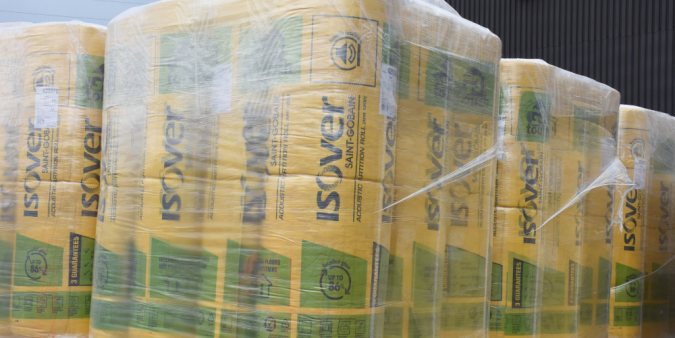The smart way to buy building materials
The devil really is in the detail when it comes to self-building.
Cutting corners is not an option when it comes to researching and sourcing your materials and products. You’ll need to set your budget, figure out large spend items, how you can source the right materials for your build system and style – and ultimately get products delivered on time.
And breathe.
It sounds like a mammoth task and it can be if you decide to do this on your own. It will take a considerable amount of time to source materials and schedule in delivery times. You may be able to save some cash by going solo but you do run the risk of specifying the wrong material, for example.
If you have a good relationship with your architect or builder, they may be the answer to your woes. They could assist you in sourcing products that meet UK building regulations and suit your build system.
The materials choices you make for your self-build project are so integral - discover the importance of why you should get involved in choosing your own materials.

Material world
Once you have obtained planning permission for your build you could approach your local builders’ merchant to discuss quotes for bricks, timber frames and roofing. Teaming up with a builders’ merchants such as Jewson can pay off. Think about how much you need to source – foundations, roofing, insulation, plasterboard, kitchen, flooring, bathroom, the list goes on…
By working with a local merchant you could lighten the load. They have access to a wide range of materials and working with one or two suppliers may be ideal for negotiating a deal. Building a relationship with one or two suppliers also helps to avoid any confusion. Take a copy of your plans, any ideas you have for materials and what type of performance you want your building to achieve and run them through what you are looking for.
It’s always worth working closely with suppliers and manufacturers to ensure you can get what you want rather than simply specifying elements that meet the minimum requirements through building regulations. The more knowledgeable you are about the materials and products that are available, the better equipped you will be to have conversations about specification with your designer and builder.
While you are visiting or calling your local merchants always ask about the possibility of obtaining a trade card or opening a trade account. Visit showrooms and building merchants and always request product samples for materials such as flooring and lighting.
A self-build account, like one offered at Jewson, can offer a host of financial benefits, including favourable trade prices and attractive credit terms.
FInd out more about how Jewson can help with your self-build, and the Jewson Self-Build Account here.

Many suppliers also have a dedicated team of experts ready to offer advice to aspiring self-builders and offer specialist services, such as sustainable materials, tool hire, kitchen and bathroom showrooms and design, landscaping centres, timber mills, and more.
Remember that many items, particularly prefabricated items such as beam and block floors or roof trusses will have a lead time and you need to order them in advance and arrange a delivery date in line with your project timelines.
Negotiation power
Bargaining skills are important when it comes to sourcing your materials whether you choose a single or multiple suppliers. Always approach three or four to gather a ballpark figure. Provide an idea of your budget and ask for the best price possible. If you’re buying high ticket items, it’s worth establishing whether they can offer a decent discount.
Discover what a timber frame whole house package is, how they can be customised, and if it's right for your self-build here.

How much do I need?
Wondering how much you need and how much it will cost? It’s not an easy part of any self-build project as it can take time but there are services available to cut out this hassle.
Build Aviator could help save you time and source locally available products. This service offers support at each stage of the build process, from product specifications to assisting with a smooth process through to building control sign off. Their qualified and experienced assessors can assist you with a comprehensive report on all the materials you need for your build. You’ll receive a customised report with product summaries, quantities required, costs and tool hire requirements. They even have a self-build essentials pack with help on everything you need.
Not sure how to budget? Why not check out our handy quantity calculators – perfect for estimating the cost of bricks, blocks and tiles.

Storing your materials
This is where your organisational skills can really shine. You probably already have a clear schedule of works so it’s a fine balance of finessing the timing of deliveries and works.
Always look at access to your building site. Will you require forklift trucks or cranes for delivery of larger materials? It sounds obvious but always ensure you, or your project manager, is on site as you don’t want to cause delays by rebooking deliveries for a later date. It’s worth keeping a handy log of all the deliveries to your site with a note of the company and driver name (if you choose to use multiple suppliers) otherwise it could get confusing!
Before you even think about deliveries you need to confirm where your materials will be stored. A secure storage space, like a garage, would be ideal. If not, site fencing is a must to protect your tools and materials against theft. Always make sure you have the right self-build insurance in place. You do need to consider how to keep items such as cement, plaster, untreated timber out of the elements. You don’t want your expensive floorboards to be exposed to the rain.

